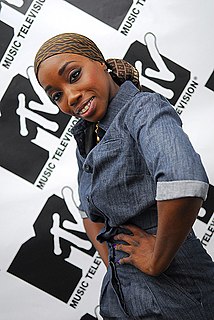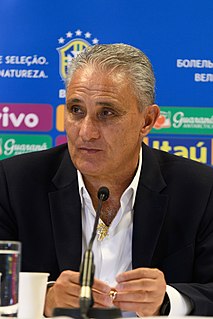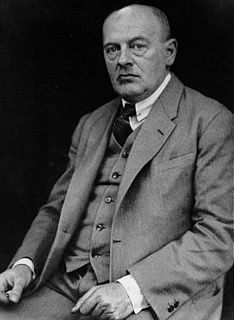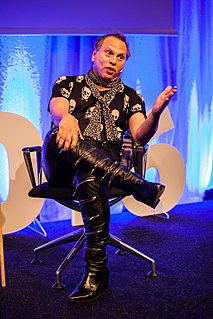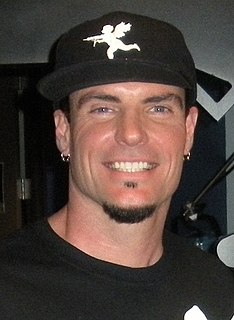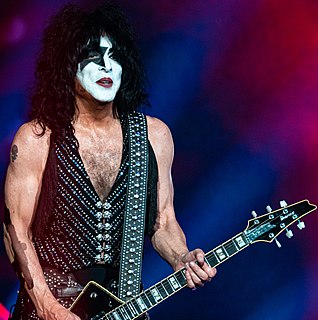A Quote by Tony McCoy
The criticism does not hurt because I have always been my own worst critic. I wouldn't say I don't respect other people's opinions, but my opinion is the most important.
Related Quotes
Perhaps the greatest mistake we can make, which causes loss of self-respect, is making the opinions of others more important than our own opinion of ourselves. You'll find no shortage of opinions directed at you. If you allow them to undermine your self-respect, you're seeking the respect of others over your own, and you're abdicating yourself.
The people at my label are always endorsing what I say. They say, 'You see the truth, so speak it.' They believe in me. They respect my opinion. At least I have an opinion, and I'm not trying to play it safe. I don't go around saying, 'I think everyone is great, and the world is fantastic.' Everyone has opinions. They just don't say it.
I respect opinions, I don't give opinions on them. I learnt to respect them. And I also have a very clear opinion on Rivaldo. He was a great player and the image that comes to me is of him controlling the ball on the chest and scoring in Barcelona. The most beautiful thing in this world. That's my opinion.
Whenever convictions are not arrived at by direct contact with the world and the objects themselves, but indirectly through a critique of the opinions of others, the processes of thinking are impregnated with ressentiment. The establishment of "criteria" for testing the correctness of opinions then becomes the most important task. Genuine and fruitful criticism judges all opinions with reference to the object itself. Ressentiment criticism, on the contrary, accepts no "object" that has not stood the test of criticism
I was the first critic ever to win a Tony - for co-authoring 'Elaine Stritch at Liberty.' Criticism is a life without risk; the critic is risking his opinion, the maker is risking his life. It's a humbling thought but important for the critic to keep it in mind - a thought he can only know if he's made something himself.
It would be inadmissible if I would vent my opinion publicly. Not only could I harm the artist concerned seriously because people have so much respect for me and believe in me because of my musical accomplishments. And I could also antagonize people against me, because everyone has his own taste. We all make music, people can choose from that what they like. Every musician likes his own music the best, man. I don't want to attack that. I don't mind criticism, I can handle it, but most people can't".
You find very few critics who approach their job with a combination of information and enthusiasm and humility that makes for a good critic. But there is nothing wrong with critics as long as people don't pay any attention to them. I mean, nobody wants to put them out of a job and a good critic is not necessarily a dead critic. It's just that people take what a critic says as a fact rather than an opinion, and you have to know whether the opinion of the critic is informed or uninformed, intelligent of stupid -- but most people don't take the trouble.
My literary criticism has become less specifically academic. I was really writing literary history in The New Poetic, but my general practice of writing literary criticism is pretty much what it always has been. And there has always been a strong connection between being a writer - I feel as though I know what it feels like inside and I can say I've experienced similar problems and solutions from the inside. And I think that's a great advantage as a critic, because you know what the writer is feeling.
The most common criticism I get is that I'm being manipulated and you shouldn't use children in political ways, because that is abuse, and I can't think for myself and so on. And I think that is so annoying! I'm also allowed to have a say - why shouldn't I be able to form my own opinion and try to change people's minds?
Music critics are, for the most part, bitter people who are intent at dragging people down for being successful at what they want to do, which is probably music. The oddity of being a critic is: You don't get a diploma, you just decide you're a critic. If someone listens to your opinion rather than their own, it's their mistake. Any critic's top 10, any year, it's something controversial or something that will make them look hipper-than-thou. The whole critic game, we've never played.


